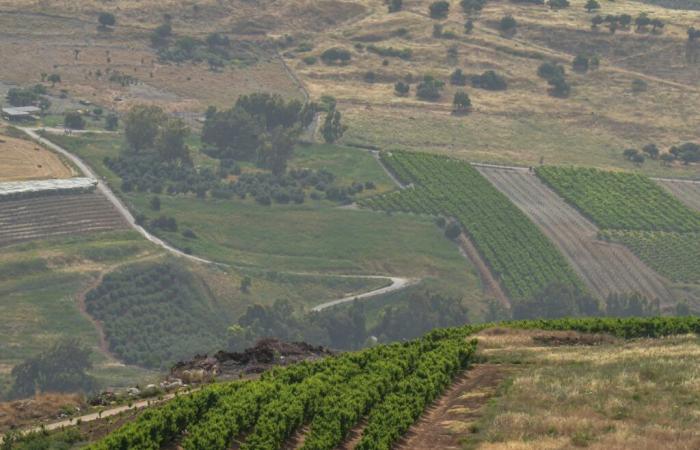– Advertisement –
Following the entry into force of a ceasefire negotiated under the aegis of the United States and France, southern Lebanon remains the scene of a deadly escalation. According to Lebanese sources, thirteen people were killed yesterday in Israeli strikes, highlighting the fragility of an agreement supposed to end 14 months of fighting. While Israel accuses Hezbollah of violations of the agreement, massive overflights by Israeli aircraft further complicate an already critical situation for civilians. At the same time, the truce arouses deep discontent in Israel, where a majority of the population considers that it constitutes a political and military victory for Hezbollah. This feeling is reinforced by the contrast between the Lebanese who are beginning to return to their villages and the displaced Israelis, who still cannot return home.
The ceasefire signed between Israel and Hezbollah last Wednesday represented a pivotal moment in a region devastated by protracted conflict. This agreement, imposed in particular by international pressure, aimed to stop hostilities after more than a year of fighting which cost the lives of hundreds of people and displaced thousands of families. The negotiations were led by American and French diplomats, marking a rare diplomatic breakthrough in a region where tensions remain palpable. Under its terms, Israel and Hezbollah undertake not to carry out offensive operations, while Israel has 60 days to withdraw its troops from the border areas in southern Lebanon. However, from the first day of its application, the agreement showed its limits.
Thirteen Lebanese killed in first post-ceasefire strikes
Just hours after the ceasefire came into effect, Israeli strikes were reported in several locations in southern Lebanon, resulting in the deaths of thirteen civilians, according to local sources. These strikes targeted residential areas, including the villages of Markaba, Wazzani, Kfar Chouba, and the agricultural plains of Marjayoun. These areas are located near the blue line, the technical border between Lebanon and Israel. Israel justifies these strikes by claiming that suspicious movements had been detected in the region. The Israeli authorities mentioned the presence of vehicles transporting individuals whom they described as “suspicious”, without providing tangible evidence. No official reaction from Hezbollah regarding these accusations has been recorded so far.
The contrast between Lebanon and Israel: an impossible return for displaced Israelis
While Lebanese civilians, despite Israeli warnings, begin to timidly return to their destroyed villages, Israelis displaced from border areas remain barred from returning by their own government. This situation fuels the perception in Israel that the ceasefire has provided a strategic advantage to Hezbollah. The Israeli decision to delay the return of border residents, officially for security reasons, reinforces the impression of asymmetric management of the post-ceasefire situation. Many Israeli analysts point to this contrast as a sign of weakness, especially since the presence of the Israeli army in certain Lebanese border areas is still perceived as precarious.
In Israel, this inability to secure border areas, combined with the need to impose restrictions on displaced Israeli civilians, is exacerbating criticism of the Netanyahu government. Many citizens and political leaders believe that this situation reflects a failure in the management of the conflict.
Rejection of the truce by a majority of Israelis
The truce concluded with Hezbollah is far from unanimous among the Israeli population. A majority of Israelis consider this agreement to be an unacceptable concession, seen as a symbolic victory for Hezbollah after more than a year of fighting. According to polls carried out by local media, many Israelis believe that this ceasefire strengthens Hezbollah politically, and weakens the Israeli position by giving the impression that the Jewish state is giving in under international pressure. This perception could have repercussions on the government of Benjamin Netanyahu, already weakened by criticism of its management of the conflict. Opposition parties were quick to denounce this truce as a strategic error, stressing that it allows Hezbollah to reposition itself and rearm.
Travel impossible for Lebanese civilians
The ceasefire had raised hopes of a gradual return of Lebanese civilians to their villages after months of forced displacement. However, the situation on the ground complicates these prospects. The Israeli army explicitly asked the displaced Lebanese not to return for security reasons. According to testimonies collected on site, Israeli strikes and intensive aerial overflights make any return attempt risky. Displaced families, particularly those living in temporary camps or with relatives, report fearing for their safety, even in areas far from the border. However, some displaced Lebanese have started to take the plunge, trying to return to check the condition of their homes or recover belongings, a stark contrast to the situation on the Israeli side.
Israeli air force maintains pressure
In parallel with ground strikes, Israeli aircraft continue to fly massively over southern Lebanon, a practice perceived by Lebanon as a flagrant violation of its sovereignty. Surveillance drones are also deployed in the area, increasing tension among residents. These activities were observed in several border localities, including those which suffered bombings. These overflights reinforce the perception that, despite the agreement, Israel seeks to maintain constant pressure on areas under Hezbollah influence.
Mutual accusations of violating the agreement
Israel has said its actions are aimed at preventing any potential attacks by Hezbollah. According to an Israeli military statement, suspicious movements detected in the targeted areas justified the strikes, although they were technically prohibited by the terms of the ceasefire. For its part, Lebanon, supported by local sources, accused Israel of violating this agreement from the very beginning. Hezbollah, a key player in the conflict, announced that its forces were closely monitoring Israeli movements and were ready to respond to any further aggression. In a statement carried by its media, the group affirmed that its fighters remained “fully equipped to defend Lebanon and meet the aspirations of the Israeli enemy.”
A ceasefire imposed in a climate of mistrust
The ceasefire, although welcomed as a diplomatic step forward, was seen by some analysts as an imposed measure rather than a real negotiated agreement. International pressure, notably from the United States and France, played a key role in its conclusion, but the objectives of the two parties remain deeply divergent. Israel seeks to contain Hezbollah’s influence while maintaining control over border areas. On the other hand, Hezbollah, weakened by human losses, notably the death of its leader Hassan Nasrallah in a recent Israeli strike, intends to use this truce to reorganize and strengthen its positions.
A region plagued by structural tensions
Southern Lebanon remains the epicenter of recurring conflicts between Israel and Hezbollah for decades. These clashes have their roots in territorial disputes, but also in broader issues, notably regional rivalries between Iran, Hezbollah’s main supporter, and Israel. The blue line, defined by the United Nations in 2000, has never resolved border tensions, and violations of Lebanese sovereignty by Israel remain frequent, according to UN reports. Added to this is the catastrophic humanitarian situation of civilians, aggravated by massive displacements and the destruction of infrastructure.
A fragile glimmer of hope for civilians
Despite ongoing violence, the ceasefire represents an opportunity, albeit fragile, to reduce the suffering of civilian populations. However, its success will largely depend on the willingness of both parties to respect the commitments made. The return of civilians to their villages and the reconstruction of affected areas will require not only strict compliance with the agreement, but also increased international cooperation to avoid further escalation. The displacement of thousands of families, combined with persistent insecurity, risks causing a larger humanitarian crisis if concrete measures are not taken quickly.
– Advertisement –






